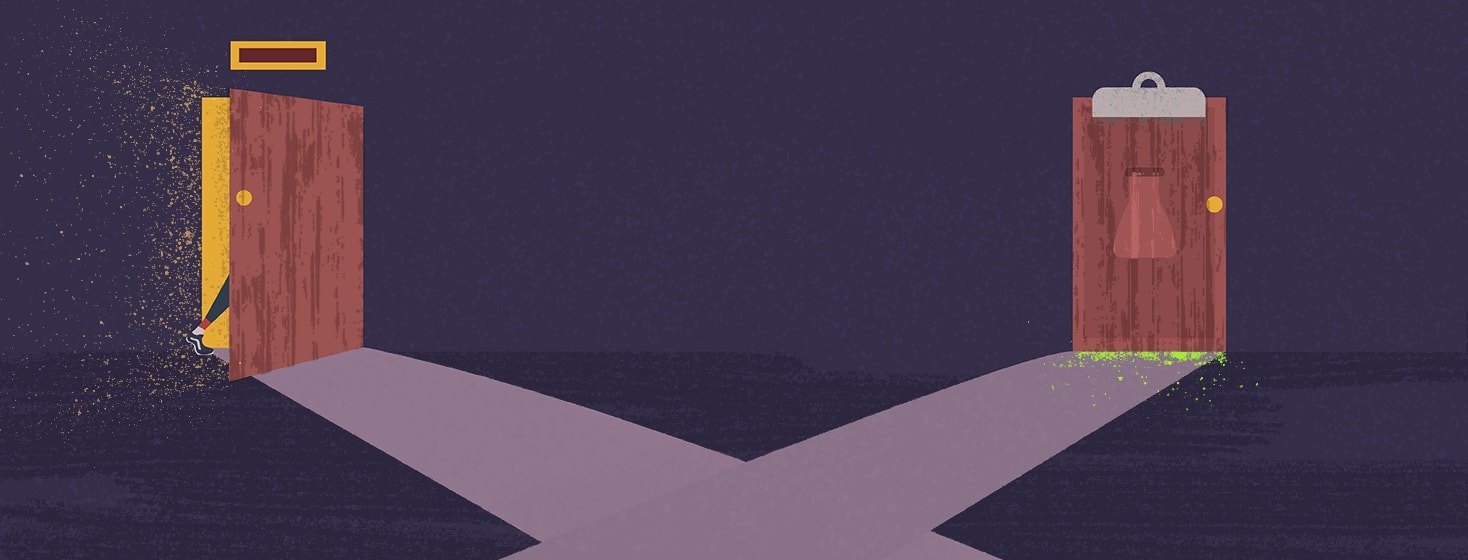Why I Chose Not to Participate in a Study, This Time
Have you participated in a study? I haven’t, but I’ve always wanted to. I love science. And since I’m not a scientist, participating in a study could be my personal contribution. But I didn’t always feel that way. Here’s why.
A way to pay for the expenses of IBD
Who knew?
When Crohn’s disease sidelined my ability to work full-time, life during 2012 got expensive. I had a high-premium high-deductible plan that drove me into debt. I was clueless about participation in studies as a way for patients to get expensive yet necessary testing and potentially treatments subsidized with no cost out of their pockets. And trial studies don’t have to involve medication.
Last year, I met a colleague who had lost insurance. His specialist was able to enter him into a study in order to get a colonoscopy covered. He was able to get checked out and contribute to IBD research in the same procedure.
I’m a study killer
Ironically, last year, at that same event, a colleague asked if I’ve ever considered participating. I replied, “No, I’m allergic to everything. With my luck, I’d probably kill the study.”
We both laughed. However, I was being sincere. Feeling responsible for ruining a study is a fear of mine. However, I keep forgetting that studies are not solely trials for new drugs. They are so much more.
Here is a great infographic from the Crohn’s & Colitis Foundation on types of clinical trials including diagnostic, like I discussed above. If you’re curious about all things IBD and research studies, here you’ll find a variety of PDFs dedicated to explaining trials.
Studies can help a patient participant while eventually helping patients
When 2018 ended, I was officially a married lady and transitioning to a new IBD specialist and a new insurance plan. My husband’s insurance plan, while comprehensive, has a high-deductible which is worrisome for us.
At my first meeting with the new specialist, we discussed my insurance plan’s deductible as a worry. We also reviewed her treatment plan (raising my medication’s reserve serum level) and the colonoscopy I keep putting off. Last, we discussed family planning timelines if my health remains stable.
She mentioned that she knew of a new trial that her office was going to participate in involving an increase of dosing for the medication I’m currently on. I was intrigued. She gave a quick summary and said she would send someone from her research coordinating team to come in to discuss logistics and answer questions.
Next steps in considering this study
Make friends with the study coordinators
True to her word, she sent in two coordinators after we wrapped up my appointment. The ladies came in and discussed the study and when they would be recruiting. Two things stood out in terms of concern for me, which were receiving two colonoscopies as part of the study. It made sense because along with bloodwork, the researchers would need pathology and imaging as a baseline and then pathology and imaging after the 16 weeks of the study had concluded. The goal of the study looked to be that researchers want to prove that Crohn’s patients do need an increase in dosing of this particular medication at a certain point in their treatment journey.
The conundrum
Pros for participating include the medication, which I’m on, would get paid for by the study as would the colonoscopy and bloodwork. Not only that, there was a stipend for the patient’s time, too. Plus, I would feel great about contributing to IBD science.
I didn’t want to make a decision on the spot. I went home and discussed with my advocacy friends who I travel with to research conferences, and the dude I married. A few days later at my annual physical, I consulted with my primary physician, who has been my healthcare hero over the years. We had a frank discussion about the pros and cons of participating in this study. I walked out almost positive on what my answer would be but wanted to give it another 24 hours to brew in the brain.
My decision on this study
Ultimately, I decided this was not the proper study for me. Why?
My eggs are older than dirt!
Kidding. Kind of. I’m 37 and am not getting any younger. Due to the financial hardships endured in my early 30s, I didn’t get the opportunity to freeze my eggs. So I want to be realistic about fertility. My husband and I had discussed earlier in 2018 that if I was healthy enough and got the green light from all the doctors, we would start trying this summer.
Reasoning
The study includes two colonoscopies and lasts 16 weeks. I typically regress health-wise after a scope. Two scopes in a short timespan are complicated. Not only that, there is no guarantee that I would be receiving the increased dose of the med I’m currently on. If I received a placebo, that would mean I went 16 weeks without trying to boost the medication serum reserve in my body. We ideally want to have it higher than it currently is since you generally skip a dose in your last trimester.
So, for now, my doctor has petitioned the insurance company to increase my dosing frequency due to having three conditions the medication helps treat. We will only do one scope.
Unfortunately for my checking account, I will be footing the bill for the colonoscopy unless I can find a study. And you better believe I’m still looking for one!

Join the conversation